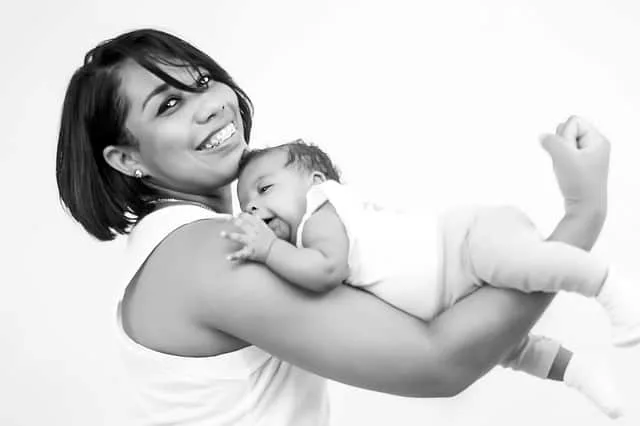
When you see the words “authoritarian” and “authoritative” in the same sentence, it’s easy to get the meanings of the two confused. To assume that they are the same thing. After all, both come from the root of “authority”. However, in practice, the two terms are quite different, especially when it comes to parenting styles.
What is the difference between authoritarian parenting vs. authoritative? Which strategy is the most effective for raising well-adjusted children? Here’s what you need to know.
What Is Authoritarian Parenting?
Because I said so. Don’t you dare talk back to me. This isn’t a democracy, it’s a dictatorship. Don’t you start crying, or I’ll give you something to cry about.
Did any of these phrases sound familiar to you? If so, then you likely grew up in an authoritarian household. For those who don’t live in such households, when parents say hurtful things, it’s an aberration. Something to be addressed immediately.
In an authoritarian household, it doesn’t matter if the parent’s words are hurtful or the punishments are excessive.
Authoritarian parenting states that the parent’s word is law. That children are willful, sinful, impulsive, impetuous beings to be forced into obedience by fear of punishment.
What Is Authoritative Parenting?
Authoritative parenting focuses on setting goals and boundaries. They may still be strict, especially in comparison to more permissive parenting styles. However, an authoritative parent does not demean or belittle their children’s opinions or feelings.
Authoritative parents are willing to listen to their child’s arguments and acknowledge them. To listen, even if it doesn’t change their mind or the ultimate outcome. They set rules, but explain why the rules exist and why it’s bad to break them instead of relying on fear to keep their children in line.
Which Is the More Effective of the Two?
The studies surrounding spanking and its effectiveness offer a clear picture of which parenting style works. Spoiler alert: Spanking doesn’t work, encourages fear and distrust, and can even encourage violence as a method of problem-solving.
Authoritative parenting teaches children to seek independence and think critically. To think, even if there are still rules set in place that they must follow. It allows open and honest dialogue between parent and child, fostering healthy lines of communication.
Authoritarian parenting smothers independence and rejects all forms of critical thinking. It introduces fear into what should otherwise be a relationship of absolute trust. This leads to worse outcomes when the child does happen to get in over their head.
Why? Well, they’re less likely to come to their parents for fear of being hurt or punished.
Authoritarian Parenting vs. Authoritative: Let’s Review the Differences
So, what are the differences between authoritarian parenting vs. authoritative? Simply put: It’s all about respect.
In an authoritarian parenting style, respect goes only one way: Up to the adult, whom the child should fear. In an authoritative parenting style, respect is a two-way street between parent and child. One punishes, the other disciplines.
Are you worried that you’re crossing the line into authoritarian territory? If so, check out our blog for helpful parenting tips today.
- Sagittarius Man & Gemini Woman Love and Sex Compatibility - January 31, 2024
- Taurus Ascendant Rising Personality Traits in Men (Guide) - January 31, 2024
- How to Seduce and Attract a Sagittarius Man (Seduction Tips) - January 31, 2024
